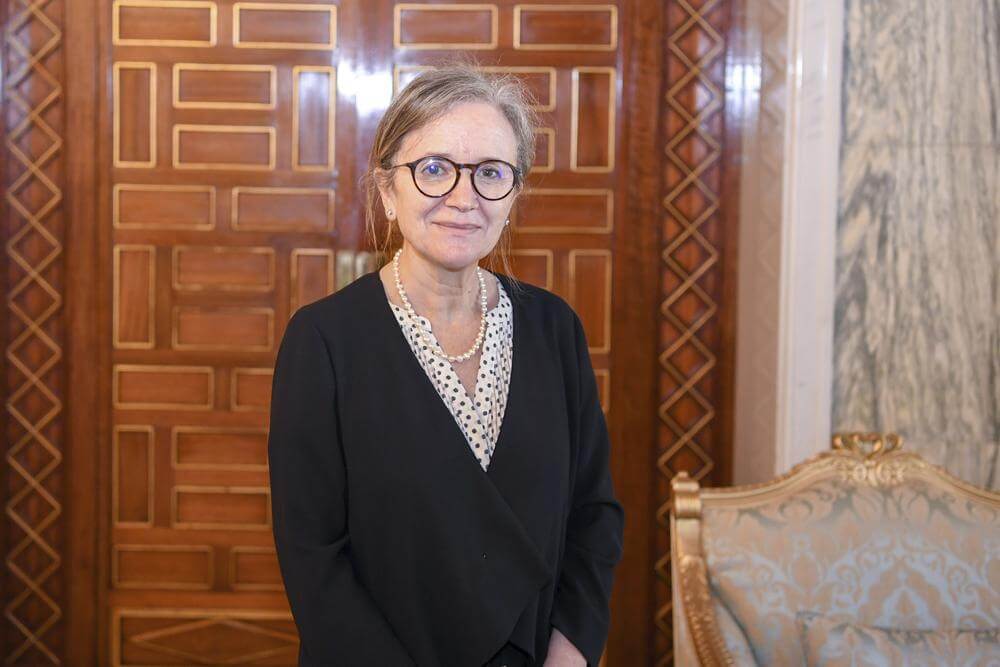Najla Bouden Romdhane was appointed Tunisia’s first female Prime Minister (PM) on Wednesday by President Kais Saied, two months after he dismissed former PM Hichem Mechichi.
The Tunisian Presidency announced on Twitter that Saied had tasked Romdhane “with forming a new government as soon as possible.” Saied said Bouden’s appointment honoured Tunisian women and asked her to propose a cabinet in the coming hours “because we have lost a lot of time.”
Bouden, 63, is a geophysics professor and was instrumental in implementing several World Bank projects in Tunisia’s Education Ministry. She became the first woman to be appointed as head of government in an Arab League nation.
The new PM will be tasked with taking care of rampant corruption and an ailing economy, made worse by the COVID-19 pandemic. However, it is unclear whether Bouden would exercise the functions assigned to the country’s PM under the 2014 constitution after Saied issued decrees bolstering his executive powers.
Last week, Saied declared that he would rule by decree and suspend parts of the constitution that conflict with his power. The move essentially enables Saied to adopt new legislation by decree, appoint the Cabinet, and make fundamental policy decisions without any interference.
In July, Saied dismissed the country’s Prime Minister (PM), indefinitely suspended the parliament, lifted the immunity of all lawmakers, and said he would appoint a new PM. The decision was condemned by the opposition, who called it a coup. The Ennahda Party said it was “unconstitutional, illegal, and invalid” and marked a “return to dictatorship.”
Saied quoted Article 80 of the Tunisian constitution to justify his actions. As per the Article, in the “event of imminent danger” to the Tunisian republic, the President “may take any measures necessitated by the exceptional circumstances.” It adds that the President should consult with the PM and Speaker of Parliament before taking any action and that any such measures must ensure “a return to the normal functioning of state institutions and services.”
Saied said his moves were meant to save Tunisia from its financial troubles and blamed the previous government’s handling of the COVID-19 pandemic. Saied has frequently alleged that several Tunisian parties, especially the Islamist Ennahda Party, are a danger to the future of Tunisia.
Last week, Saied claimed Tunisia was being run by a “mafia” and accused political parties of “seeking to sow chaos and disorder in the country.” Warning that “the danger still exists,” Saied said he “cannot leave the state as a puppet moved by threads behind the curtain.” As a result, Tunisians have largely supported Saied’s intervention hoping that he would introduce much-needed reforms.
However, rather than bringing any reforms, Saied has consolidated more power, cracked down on dissent, and arrested several lawmakers, including ex-presidential candidate Nabil Karoui.
Saied’s moves threaten to undo the democratic gains made by Tunisia following the 2011 revolution that sparked the wider Arab Spring protests.
Tunisian President Saied Names First Woman Prime Minister Amid Political Crisis
Tunisian President Kais Saied appointed Najla Bouden Romdhane as the country’s first female PM on Wednesday amid the ongoing political turmoil.
September 30, 2021

Tunisia's first female PM Najla Bouden Ramadhane SOURCE: TUNISIAN PRESIDENCY
